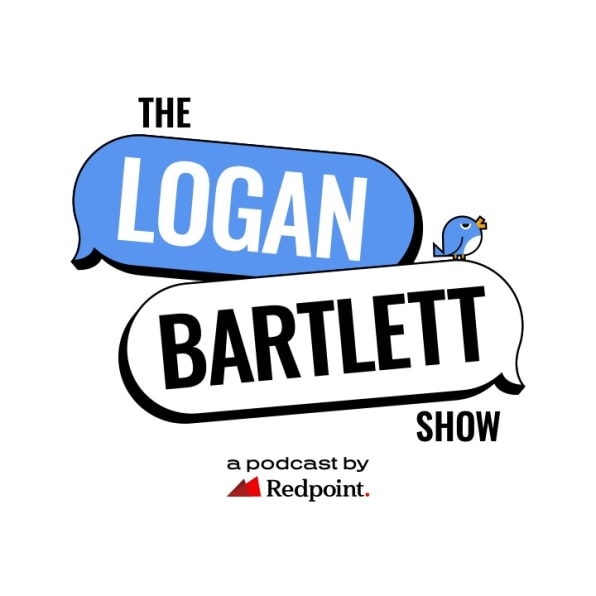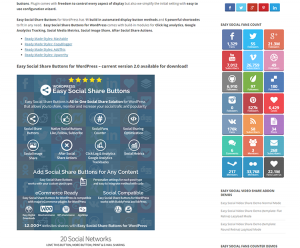Logan Bartlett has something he wants me to see. On an unseasonably warm New York day in mid-November, Bartlett, managing director at the venture firm Redpoint and podcast host, pulls out his phone at the start our alfresco lunch to walk me through a spreadsheet he built. It’s not the cap table of Ramp, the $8 billion valuation corporate spending management software startup that’s one of his investments. No, he’s calculated the odds of every scenario that would allow his beloved University of Tennessee Volunteers to make the college-football playoff.
As Bartlett pans and zooms the Google Sheet on his phone and I pretend to understand both statistics and the current college football landscape, I see the obsessiveness, curiosity, and good cheer that have made Bartlett a rising star VC podcaster. (Alas, for Bartlett, who has a separate Twitter feed for his Vols-related posts, Tennessee finished just outside the final four.)
Since launching his weekly podcast in early 2022, Bartlett has evolved from a popular Twitter shitposter—e.g., “So you just joined a venture firm after 2 years at Morgan Stanley and 4 years at Penn/Stanford/Harvard etc? Congrats! Time to get to work and start podcasting”—to one of the sharpest interviewers of tech executives on Cartoon Avatars, which he just rebranded to The Logan Bartlett Show.
He’s gotten high-profile serial entrepreneurs Parker Conrad and Palmer Luckey to share previously undisclosed details of their unceremonious firings from Zenefits and Facebook, respectively. (Conrad explained how he was made the fall guy by his COO, David Sacks, and Luckey delineated precisely how the story of his 2016 political donation got twisted in the media.)
Bartlett coaxed Mark Cuban out of just recounting his greatest hits by asking him if he has an affinity for European white men. He got Kara Swisher to drop a bit of her persona by engaging her on what TV she’s watching. And his nose for the zeitgeist led his show to alter the entire discourse around Web3 last summer—albeit with help from some friends. “The nice thing that I have in all of this is that I get to do [the podcast] while claiming that I don’t really care that much while having a day job,” Bartlett says.

For all of Bartlett’s aw-shucks, take-it-or-leave-it attitude, his ambition as he starts his second year is clear. “I’ve taken inspiration from two very different shows along the way. All-In was kind of the original,” he says, citing the weekly roundtable news commentary show featuring venture capitalists Jason Calacanis, Chamath Palihapitiya, David Sacks (yes, the same one referenced above), and David Friedberg. “The one I now look to the most is Lex Fridman and what he’s been able to do. He started with an AI podcast and expanded from there.”
So the No. 1 and No. 2 tech podcasts on the Apple charts are your North Star, I say.
Bartlett deadpans, “Good inspiration to have, I guess.”

From cartoon to human
By late 2021, Bartlett, then 34, had spent the pandemic both settling in at Redpoint and playing what he calls a “Stephen Colbert-like character” on Twitter. While his posting helped him stand out a bit from the increasingly crowded field of investors chasing deals in a “market gone haywire,” as Bartlett says, he felt that he needed more. While his Twitter persona is fun, it’s one-dimensional—and limited to bursts of up to 280 characters.
Like seemingly every person in or around tech (myself included), he listened to All-In. But unlike most listeners, he set out to create a podcast of his own, enlisting two friends—social-media startup founder Nikita Bier, and Zak Kukoff, an investor at General Catalyst—who were about the same age and career stage and who also had meaningful Twitter followings but different points of view. Together they launched what you might call a younger, extremely online All-In, one whose hosts’ net worth feature one or two fewer zeroes.
“It wasn’t the only version of that show that I thought could or even should exist,” Bartlett says of his initial inspiration.
When the show, Three Cartoon Avatars, debuted in late January 2022, Bartlett immediately acknowledged the (white) elephant in the room:
But the timing, for Bartlett at least, proved fortuitous. “The irony of all this was that I needed [the podcast] in the markets of 2021, just to differentiate,” he explains, noting that he recorded several test episodes starting in November 2021, which turned out to be the market peak. “But if the market stayed the way it was in 2021, I wouldn’t have had the time to dedicate to it.”
Bartlett continued to play it cautious, giving himself an escape hatch to kill the show if he thought it didn’t work. He would soon have that first opportunity, when his cohosts left the podcast after about three months. Bier, who had been working in stealth on what would become the Gas app, took leave to devote all his time to its release. (Bier sold Gas to Discord in January). Kukoff departed soon thereafter.
“Ever since he kicked me off the show, the entire thing has gone downhill, along with his reputation,” Bier responds via DM, as his Twitter character, when asked for a quote on Bartlett and the evolution of the podcast. “We are no longer on speaking terms.”
When I text Bartlett that I had reached out to his former cohosts and that Bier’s quote would necessitate me asking him for comment, he replies, “LOL he told me what he was going to say.”
The Jerry Springer of crypto podcasts
Having lost his original castmates, Bartlett changed the show’s name to Cartoon Avatars and leaned more into interviewing guests. “Once we went down this hole of talking to people, I had immediate access [via Twitter] to enough people that I thought would be interesting for others to hear from that I would be able to make it for some period of time.”
High-profile investors such as Keith Rabois and Josh Wolfe; analysts Ben Thompson and Benedict Evans; acid gadflies like Alexis Gay and Matt Levine; and CEOs such as Box’s Aaron Levie and Maven Clinic’s Kate Ryder all sat down with Bartlett.
“As the nerdiest of the former Cartoon Avatars hosts,” former cohost Kukoff tells me, “I might be the only one taking this question seriously. What Logan has done with Cartoon Avatars is give a much-needed voice to the voiceless: venture capitalists. I listen every week.”
Then crypto started to crater, and its future became topic A. Bartlett had expressed some skepticism, but he also invited serial entrepreneur and investor Zach Weinberg to join the show. His much more emphatic tone about crypto and Web3—“Speculate all you want, on a token, on a coin, I don’t really give a shit,” Weinberg said on episode 12 last April. “But if you are passing that risk off to the retail investor without proper disclosures and they’re not an informed investor in this process, that’s why we have the SEC.”—led Bartlett to ask his friend Packy McCormick, who writes the popular newsletter Not Boring and is a Web3 proponent, to talk to Weinberg about what was going on in crypto.
In that episode, one particular five-minute exchange features McCormick trying to argue that real estate transactions would be more efficient on the blockchain, and Weinberg very much not buying it.
“Zach is super sharp and just debated better than I did,” McCormick says. “The flub was my fault, and I didn’t ask Logan not to run it.”
What followed was then a series of Web3 advocates coming on the podcast to make the case and Weinberg trying to force them to follow the logic of their arguments.
“When Cartoon Avatars invited champions of blockchain and Web3 to come on the podcast and debate Zach Weinberg, it was the only podcast publishing substantive debate between tech industry luminaries,” Liron Shapira writes when I ask about his relationship to the show. “Those occasional moments of drama also gave it an irresistible reality TV-Jerry Springer element that you never see in tech media.” (McCormick believes that the debates were “healthy” for Web3.)
After 10 debates, though, Bartlett was basically done with crypto, and it was another moment when he could have retired the show. “I knew [ending the crypto debates] would hurt numbers,” he says. “People are drawn to conflict. I said, ‘I’m not going to look at what this does to the listenership.’”
“Who is Logan Bartlett?” Weinberg asks. “Was that the other guy on the podcast with me?” He’s joking, but Bartlett did let Weinberg run wild—particularly in a two-hour shouting match with VC Sam Lessin—such that it has the sting of truth.
I ask Bartlett if he feels like there’s any dissonance between his stated goal of “not trying to make my name or make any enemies over any one conversation” and his series of crypto debates where Weinberg arguably came away with a record of nine wins and one draw.
“The only conversation in all of those that was not eyes wide open coming in was the one that we had with Packy originally,” Bartlett says. “We had no appreciation for how viral that was going to go. I remember Packy afterwards saying, ‘Oh man, I don’t know if that part came out great.’ And I was like, ‘Dude, no one’s gonna care. No one’s gonna listen.’ Of all the things I did wrong in that situation, it was my read on it, reassuring him after the fact, that I was totally mistaken on.”
Putting his name on the podcast door
In early January, Cartoon Avatars released Bartlett’s interview with Stability AI CEO Emad Mostaque. It was another moment of him having the right guest at the perfect time and eliciting deep insights from an expert on a topic people are currently fascinated with. “On a 10-day cohort, it has far and away been our best-performing episode,” Bartlett says. “That is a big point of validation now that we’ve had at least one episode that’s blown out the numbers that we had during the peak of all the crypto stuff.”
The spike comes at the opportune moment of Bartlett deciding to retire the Cartoon Avatars name and affix his own to the podcast. “It became clear that the brand didn’t really stand for much,” he says, “and it would be better just to have the cumulating benefit of it being directly associated with me.” After a year of trepidation, he’s committing to doing at least “40 to 55” more episodes.
His goal: to be a “conversationalist,” not an interviewer, which is harder than it looks. “I’m fired if I say anything mean about Logan,” says Rashad Assir, a prolific content creator at Redpoint who in addition to his own TikTok videos and podcast has served as a producer on Bartlett’s show (and occasional on-mic guest). “He will find every single thing that someone has done, listen to 15 hours of podcasts. He approaches it with so much diligence, like it’s one of his investments.”
Bartlett acknowledges the slog in getting a podcast off the ground and that it’s been “way more work than I knew diving in.” He hopes to get to a place where he’s getting more of the kind of people he wants on the show reaching out to him rather than him having to chase the next layer of guest just beyond his Twitter network who can exceed the bar of his first-year highlights. (Jack Dorsey: Go on The Logan Bartlett Show.)
“I am far more empathetic to the elements of starting a company, having had to pivot and [feeling] lost along the way and needing to just keep plowing ahead,” Bartlett says. “We have people who work with us on this [at Redpoint], and so there’s a lot of that pressure that I hadn’t necessarily felt in the same way. There are a bunch of things that have been beneficial from a soft standpoint as well as hard relationships built and notoriety and all that stuff. It’s been fun, if not a kind of surreal, weird experience to walk into.”
(9)







